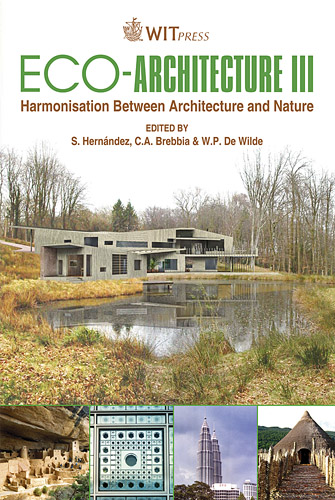Sustainable Solutions For Spa Design, Dubai, United Arabic Emirates: Building Envelope Optimization And Impact Energy Evaluation
Price
Free (open access)
Transaction
Volume
128
Pages
13
Page Range
281 - 293
Published
2010
Size
1,114 kb
Paper DOI
10.2495/ARC100241
Copyright
WIT Press
Author(s)
D. Tanzj, C. Clemente, F. Cumo & G. Piras
Abstract
In recent years, energy consumption for cooling buildings has become a real concern, particularly regarding the availability of electricity during high load hours. There is a growing sensitivity in architecture for approaches that respect the environment and pursue energy efficiency. Ventilation, like other passive cooling solutions, involves conceptualizing a building as a body able to both recognize and metabolize the resources of its environment. In this context, the role of technology is no longer a \“value added” to architecture, but a tool integrated with it. For these reasons, my study and research efforts have been focused mainly on the development of sustainable technologies. The intention is to exploit the natural elements of a site: sun, soil and, particularly, air. Thus, the design of the building is done in steps, starting with the choice of exposure and then moving on to the shape, the study of shielding systems, and the observation of greenery outside. The goal of optimal wellness is to locate buildings in a manner that does not adversely affect the potential use of climatic resources and maintaining consistent configuration of shape and geometry. Graphics were Keywords: sustainable, archetypes, passive design, integrated, green energy, solar control, wellness, ventilation, energy efficiency, passive cooling, soil cooling, evaporative cooling, sustainable technologies, natural elements, to position individual buildings so as to maximize the use of winds while produced to conclude the study design and to demonstrate CO2 reduction. climatic resource, insulating, induced ventilation, saving CO2.
Keywords
sustainable, archetypes, passive design, integrated, green energy, solar control, wellness, ventilation, energy efficiency, passive cooling, soil cooling, evaporative cooling, sustainable technologies, natural elements, to position individual buildings





